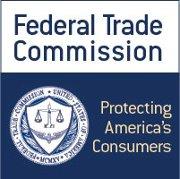
Uber Agrees to Expanded Settlement with FTC Related to Privacy, Security Claims
Company failed to disclose breach in fall of 2016 during FTC investigation
Uber Technologies, Inc. has agreed to expand the proposed settlement it reached with the Federal Trade Commission last year over charges that the ride-sharing company deceived consumers about its privacy and data security practices.
After the announcement of last year’s proposed settlement, the Commission learned that Uber had failed to disclose a significant breach of consumer data that occurred in 2016 -- in the midst of the FTC’s investigation that led to the August 2017 settlement announcement. Due to Uber’s misconduct related to the 2016 breach, Uber will be subject to additional requirements. Among other things, the revised settlement could subject Uber to civil penalties if it fails to notify the FTC of certain future incidents involving unauthorized access of consumer information.
“After misleading consumers about its privacy and security practices, Uber compounded its misconduct by failing to inform the Commission that it suffered another data breach in 2016 while the Commission was investigating the company’s strikingly similar 2014 breach,” said Acting FTC Chairman Maureen K. Ohlhausen. “The strengthened provisions of the expanded settlement are designed to ensure that Uber does not engage in similar misconduct in the future.”
In announcing the original proposed settlement with Uber in August 2017, the FTC charged that the company had failed to live up to its claims that it closely monitored employee access to rider and driver data and that it deployed reasonable measures to secure personal information stored on a third-party cloud provider’s servers.
In the revised complaint, the FTC alleges that Uber learned in November 2016 that intruders had again accessed consumer data the company stored on its third-party cloud provider’s servers by using an access key an Uber engineer had posted on a code-sharing website. This time, the intruders used the access key to download from Uber’s cloud storage unencrypted files that contained more than 25 million names and email addresses, 22 million names and mobile phone numbers, and 600,000 names and driver’s license numbers of U.S. Uber drivers and riders.
The revised proposed complaint further notes that Uber paid the intruders $100,000 through its third-party “bug bounty” program and failed to disclose the breach to consumers or the Commission until November 2017. The bug bounty program was created to provide financial rewards to parties who responsibly disclose security vulnerabilities rather than those who maliciously exploit vulnerabilities to access consumers’ personal information.
In addition to compelling Uber to disclose certain future incidents involving consumer data, the new provisions in the revised proposed order include requirements for Uber to submit to the Commission all the reports from the required third-party audits of Uber’s privacy program rather than only the initial such report. It also must retain certain records related to bug bounty reports regarding vulnerabilities that relate to potential or actual unauthorized access to consumer data.
The Commission vote to withdraw the original administrative complaint and proposed consent agreement and to issue the revised administrative complaint and to accept the revised proposed consent agreement was 2-0. The FTC will publish a description of the consent agreement package in the Federal Register shortly. The agreement will be subject to public comment for 30 days, beginning today and continuing through May 14, 2018, after which the Commission will decide whether to make the proposed consent order final.
Interested parties can submit comments electronically by following the instructions in the “Invitation To Comment” part of the “Supplementary Information” section.
NOTE: The Commission issues an administrative complaint when it has “reason to believe” that the law has been or is being violated, and it appears to the Commission that a proceeding is in the public interest. When the Commission issues a consent order on a final basis, it carries the force of law with respect to future actions. Each violation of such an order may result in a civil penalty of up to $41,484.
